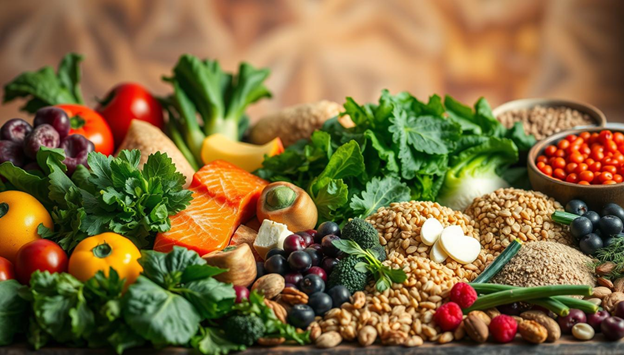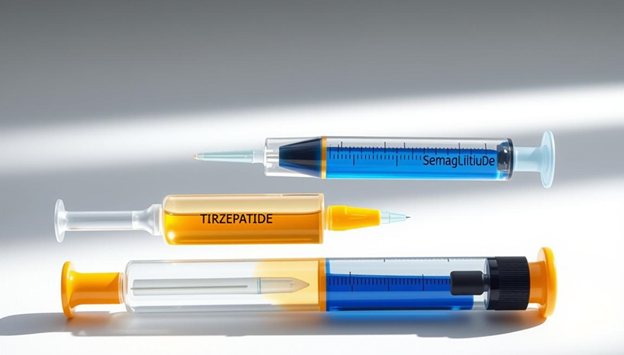Stress is a common experience that can impact daily life and overall mental health. For many, it can feel overwhelming, but understanding how to manage anxiety effectively can make a significant difference. According to the National Institute of Mental Health (NIMH), over 40 million U.S. adults are affected by stress-related challenges annually.

Dealing with conjunctivitis can be uncomfortable, but 2025 brings new and effective over-the-counter solutions to help manage symptoms. This guide explores the latest OTC remedies, offering practical advice for those seeking relief at home. Whether it’s viral, bacterial, or allergic conjunctivitis, understanding the right treatment can make a big difference.
Published May 23, 2025

Medications have transformed healthcare, offering effective treatment for various conditions. However, they can also bring unexpected reactions. For instance, diphenhydramine (Benadryl) is widely used for allergies but may cause drowsiness and dry mouth. These reactions highlight the importance of understanding medication side effects.
Published May 23, 2025

Gout is a type of arthritis caused by too much uric acid in the blood1. It can be managed by changing what you eat, avoiding foods high in purines. This is key for a gout diet. Knowing how turkey affects gout is important, as holiday foods like turkey can lead to flare-ups2. If you have gout, it's important to understand if turkey is bad for you and how to eat it safely.
Published Feb 19, 2025

When it comes to treating neuropathic pain, pregabalin and gabapentin are often considered. Many wonder if pregabalin is stronger than gabapentin. Knowing their strength difference is key for effective treatment. Studies show pregabalin has more than 90% bioavailability, from 75 mg to 900 mg daily in divided doses1. Gabapentin's bioavailability is about 80% at lower doses but drops to 27% at higher doses1.
Published Feb 19, 2025

Ozempic is a drug for type 2 diabetes that might help with fertility. But, we don't know much about its effects on pregnancy and babies. A recent poll found that about 1 in 8 adults have tried Ozempic1.
Studies show that people on Ozempic lose 13 to 15 pounds in 10 months. This weight loss can help women who are overweight or obese get pregnant easier2. This is important for women who might be considering using Ozempic during pregnancy3.
Published Feb 19, 2025

Kimbo Slice, a famous mixed martial artist, passed away on June 6, 2016, at 421. His death shocked the MMA world. Many are still looking for answers about what caused his death.
The autopsy showed he died from heart failure. This might be connected to his use of anabolic steroids, which affected his health2. We need to look into the heart failure causes and how they relate to his death.
Published Feb 19, 2025

Finding the right medication for diabetes is key. Knowing the top 10 diabetes medications helps people make smart choices about their treatment. This includes looking at the diabetes medication list available.
The CDC says about 34.2 million people in the U.S., or 10.5% of the population, have diabetes. About 21.4% of these cases are undiagnosed1. This shows how important it is to manage diabetes well. It's crucial to learn about the top 10 diabetes medications, their benefits, and side effects. This helps find the best treatment plan, which may include the top 10 diabetes medications and the diabetes medication list.
Published Feb 19, 2025

Compound work is a powerful idea that can help you succeed in many areas. This includes finance, fitness, and personal growth. It's about understanding how compound work works and using the compound interest formula to get the most out of it1. Experts say that compounding, or earning interest on interest, can lead to big growth over time. It's key to know the compound interest formula to make smart choices2.
Published Feb 19, 2025

Tirzepatide and semaglutide are two treatments for type 2 diabetes and obesity. They were tested on 41,222 adults, with 32,029 getting semaglutide and 9,193 getting tirzepatide1. This article will compare their effectiveness, side effects, and how they work. GLP-1 agonists like tirzepatide and semaglutide help control blood sugar without causing low blood sugar unless used with other treatments2. The average starting weight for both groups was around 110 kg3.
Published Feb 19, 2025

Dealing with conjunctivitis can be uncomfortable, but 2025 brings new and effective over-the-counter solutions to help manage symptoms. This guide explores the latest OTC remedies, offering practical advice for those seeking relief at home. Whether it’s viral, bacterial, or allergic conjunctivitis, understanding the right treatment can make a big difference.
Published May 23, 2025

Medications have transformed healthcare, offering effective treatment for various conditions. However, they can also bring unexpected reactions. For instance, diphenhydramine (Benadryl) is widely used for allergies but may cause drowsiness and dry mouth. These reactions highlight the importance of understanding medication side effects.
Published May 23, 2025

Gout is a type of arthritis caused by too much uric acid in the blood1. It can be managed by changing what you eat, avoiding foods high in purines. This is key for a gout diet. Knowing how turkey affects gout is important, as holiday foods like turkey can lead to flare-ups2. If you have gout, it's important to understand if turkey is bad for you and how to eat it safely.
Published Feb 19, 2025

When it comes to treating neuropathic pain, pregabalin and gabapentin are often considered. Many wonder if pregabalin is stronger than gabapentin. Knowing their strength difference is key for effective treatment. Studies show pregabalin has more than 90% bioavailability, from 75 mg to 900 mg daily in divided doses1. Gabapentin's bioavailability is about 80% at lower doses but drops to 27% at higher doses1.
Published Feb 19, 2025

Ozempic is a drug for type 2 diabetes that might help with fertility. But, we don't know much about its effects on pregnancy and babies. A recent poll found that about 1 in 8 adults have tried Ozempic1.
Studies show that people on Ozempic lose 13 to 15 pounds in 10 months. This weight loss can help women who are overweight or obese get pregnant easier2. This is important for women who might be considering using Ozempic during pregnancy3.
Published Feb 19, 2025

Kimbo Slice, a famous mixed martial artist, passed away on June 6, 2016, at 421. His death shocked the MMA world. Many are still looking for answers about what caused his death.
The autopsy showed he died from heart failure. This might be connected to his use of anabolic steroids, which affected his health2. We need to look into the heart failure causes and how they relate to his death.
Published Feb 19, 2025

Finding the right medication for diabetes is key. Knowing the top 10 diabetes medications helps people make smart choices about their treatment. This includes looking at the diabetes medication list available.
The CDC says about 34.2 million people in the U.S., or 10.5% of the population, have diabetes. About 21.4% of these cases are undiagnosed1. This shows how important it is to manage diabetes well. It's crucial to learn about the top 10 diabetes medications, their benefits, and side effects. This helps find the best treatment plan, which may include the top 10 diabetes medications and the diabetes medication list.
Published Feb 19, 2025

Compound work is a powerful idea that can help you succeed in many areas. This includes finance, fitness, and personal growth. It's about understanding how compound work works and using the compound interest formula to get the most out of it1. Experts say that compounding, or earning interest on interest, can lead to big growth over time. It's key to know the compound interest formula to make smart choices2.
Published Feb 19, 2025

Tirzepatide and semaglutide are two treatments for type 2 diabetes and obesity. They were tested on 41,222 adults, with 32,029 getting semaglutide and 9,193 getting tirzepatide1. This article will compare their effectiveness, side effects, and how they work. GLP-1 agonists like tirzepatide and semaglutide help control blood sugar without causing low blood sugar unless used with other treatments2. The average starting weight for both groups was around 110 kg3.
Published Feb 19, 2025